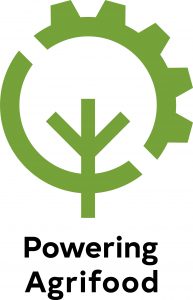Powering Agrifood
Powering the agrifood value chain
Project coordinator: Pim Frederix, p.frederix@newenergycoalition.org
The agri-food value chain, which is comprised of many businesses ranging ‘from Farm to Fork’, is a leading player world-wide in product and process innovations. New technologies offer the sector opportunities to promote the energy transition, while generating additional revenue and/or reducing its own energy costs and carbon footprint. Powering Agrifood aims to accelerate the energy transition in two ways:
(1) Perform a system perspective study on how farmers, cooperatives and processing plants can
positively impact local or regional energy systems by offering flexibility, reversible conversion
or electrification. This activity will include making an inventory of energy-efficient, green and
flexible technologies that can most cost-effectively help reach the sector’s sustainability goals
with regards to energy usage and waste minimization, towards 2025 and onwards.
(2) Demonstrate the potential of a multi innovative biogas solid oxide fuel cell unit, converting
agricultural waste streams to locally needed energy carriers, such as steam for processing or
H2 for e.g. transport. After obtaining real operational parameters our partners will evaluate
the potential for the technology in a Dutch agrifood setting as well as its international potential
in urban or rural areas.
Partners and their roles
Below are prospective tasks and estimated planning, in kind and/or cash contribution
New Energy Coalition
Project coordination – ensure deliverable progress
Dissemination – sharing news on activities and deliverables as they are ready
Follow-up project support – exploration and co-writing
Northern Netherlands energy system insights – interview by University of Groningen (RUG)
Workshop support – reaching out participants
assist scheduling Groningen workshop
New Energy Coalition partners: EBN, NAM, Gasunie, GasTerra
Financial support / Feedback system study (energy perspective)
Koningshoeven Abbey
Demonstration site Biomakery – prepare connections for pilot start (with RUG and TUD)
prepare digester (with TUD)
Identify opportunities (La Trappe) brewery and water management
interview
Internationalisation Africa – suggestions for benefits rural Uganda
Royal Cosun
Opportunities ground crop value chain & energy flows – interview
defining boundary conditions techno-economic analysis
Farmer cooperative involvement in workshops
Delta Agrifood Business
Agrifood stakeholder involvement (in workshops or follow-up proposal)
South-West Netherlands agricultural and energy system insights – interview by RUG
Workshop host
Biosfera foundation
Involvement additional Dutch agro-industry (for workshops, case studies or follow-up initiatives),
internationalisation India – contribution to advisory report with case study
iRCB / ibert
Exploitation SOFC technology – early analysis (M6 advice) and after pilot
internationalisation Africa – contribution to advisory report case study
University of Groningen (RUG)
Daily project management – initiative in research, deliverable completion, supervision of activities
System study (thermodynamics, economics, system transition plan) – Interviews with partners, peer-reviewed article (M24) and advisory report
2 stakeholder workshops lead
Pilot installation
Pilot operation lead – and analysis afterwards
Follow-up proposal lead – exploration with partners and writing
Student supervision – case studies for MSc students
Technical University Delft (TUD)
Co-supervision researchers
Research support (waste management perspective, negative emissions program)
Pre-pilot work in digester (separate from this project)
Pilot support
AVANS Hogeschool
Training/supervising students 2nd-4th year
Design and execution of ~3 student research projects – outlines
Pilot support – If within scope of student projects

